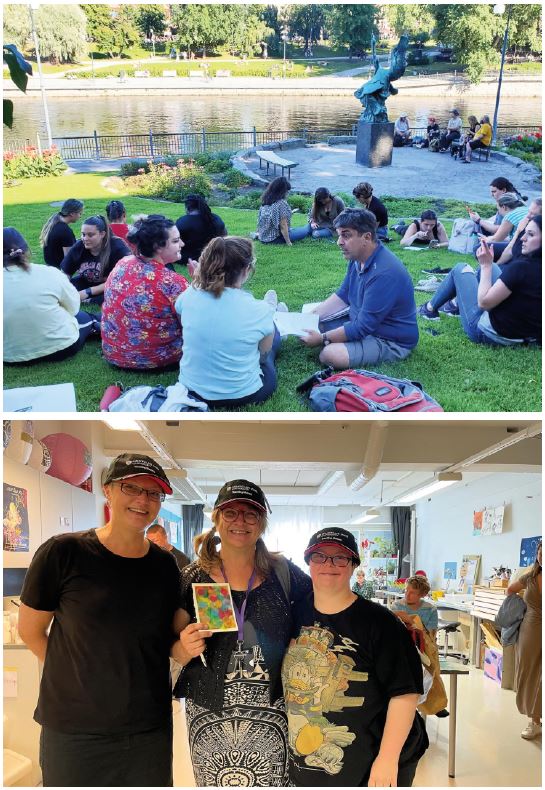United States and on the Montclair campus, to develop post-secondary programming, and the research-backed examples that have been implemented in the University's Increasing Access to College (IAC) project.
The IAC is an inclusive post-secondary program at Montclair that partners with New Jersey school districts, to provide the opportunity for college-aged students with intellectual disability labels enrolled in a transition program, to participate in higher education. IAC students audit college courses of their choice, participate in social opportunities, and engage in campus recreational activities in a peer-supported model.
"In Finland, most people with intellectual disability labels study only in vocational schools, so scholars in Finland are interested in emulating the IAC model, which provides inclusive and peer-supported opportunities for this underserved group, to pursue academic and scholarly interests," said Bacon. "The 'educational for all' model gives incentive to the Finnish framework to find new and innovative structures, to include all people in their excellent and free University settings."
"Each student also completed an individual research project while on the trip, which enhances their own scholarly interests and connects to their future professional goals."

IMMERSIVE LEARNING: (Above, top) The group holds a reading discussion near a river in Tampere City Center; (Above, below) Finnish researchers Reetta Mietola, Katariina Hakala, and Katariina's daughter Noora at Noora's employment center in Helsinki.
In addition to the academic program, students and faculty were part of a holistic experience. The group also got to immerse themselves in the culture of the country and tour the cities outside of the classroom. From guided walking tours, to visits to such landmarks as the Suomenlinna Fortress in Helsinki, the trip served as a true global experience with memories that will last a lifetime.
"This experience fostered shared knowledge in ways that mirrored the Finnish values of collaborative learning and social responsibility," said Stephanie Spitz, a student in Montclair's Master's program in Higher Education. "This trip has transformed my understanding of teaching
methods and made me critically examine frameworks of equity within education."
"Our hope for this trip was that students were able to reflect critically on pedagogical practices and policies that enhance support for all learners, while also being able to critically examine policies and practices both in the US and abroad, that are exclusionary," said Bacon. "Each student also completed an individual research project while on the trip, which enhances their own scholarly interests and connects
to their future professional goals. We feel this trip provided a powerful opportunity for students to collaboratively develop a critical lens and learn about best-practices in the field of education, which will be applied to their work of supporting and advocating for inclusive opportunities for children with disabilities in the US." •
ABOUT THE AUTHOR:
Andrew Mees, Media Relations Director, Montclair State University.